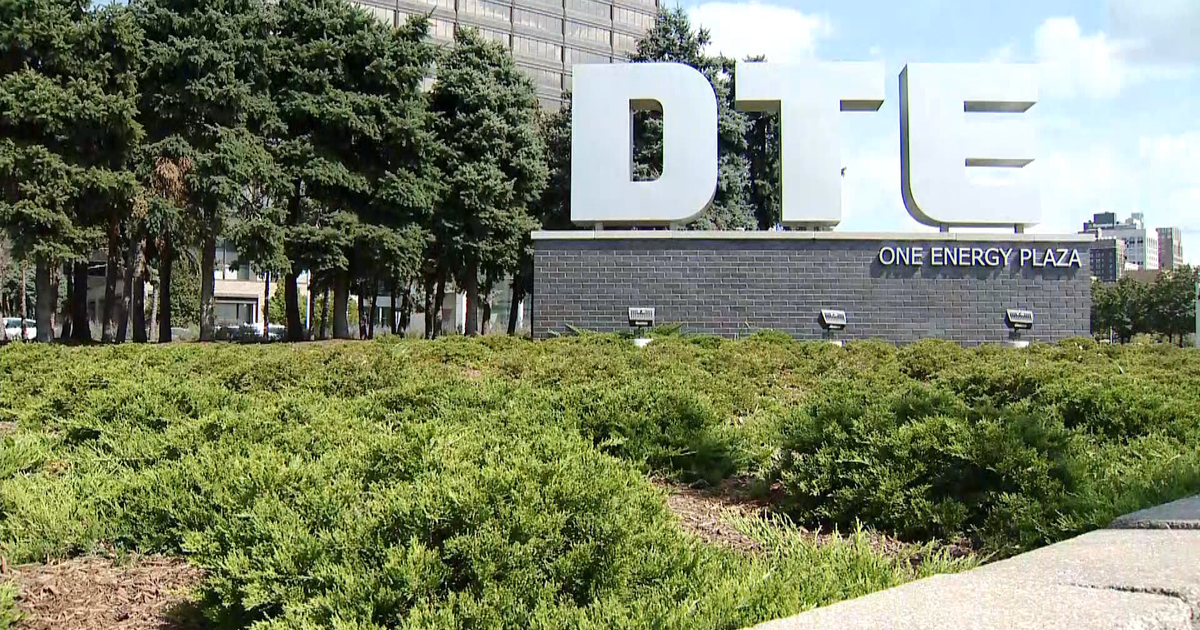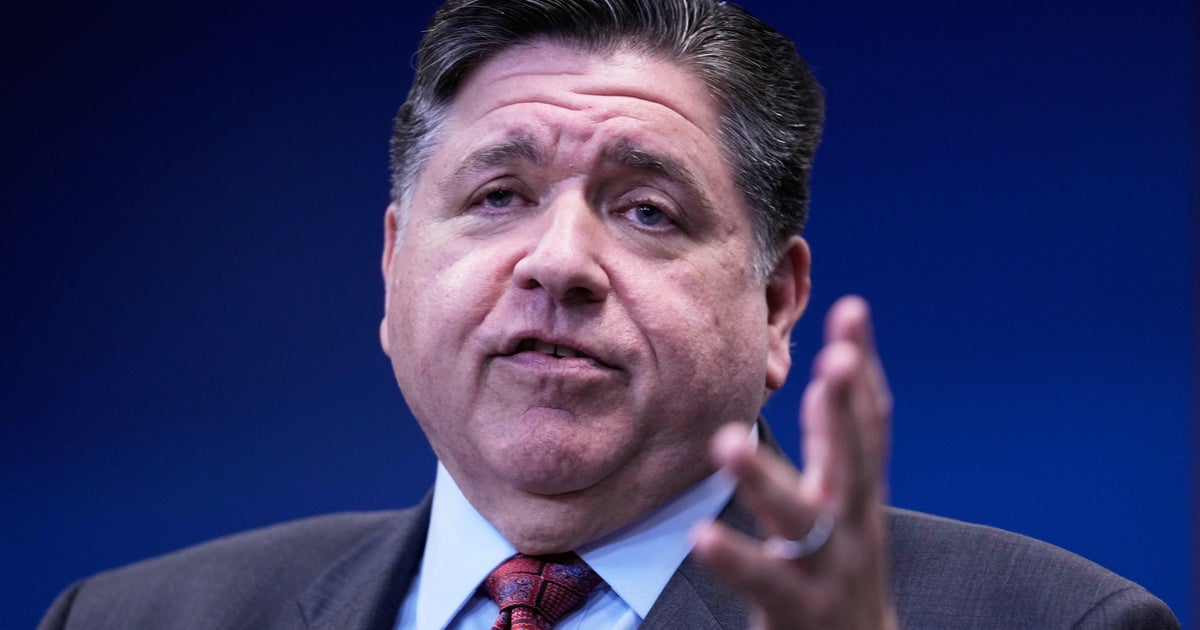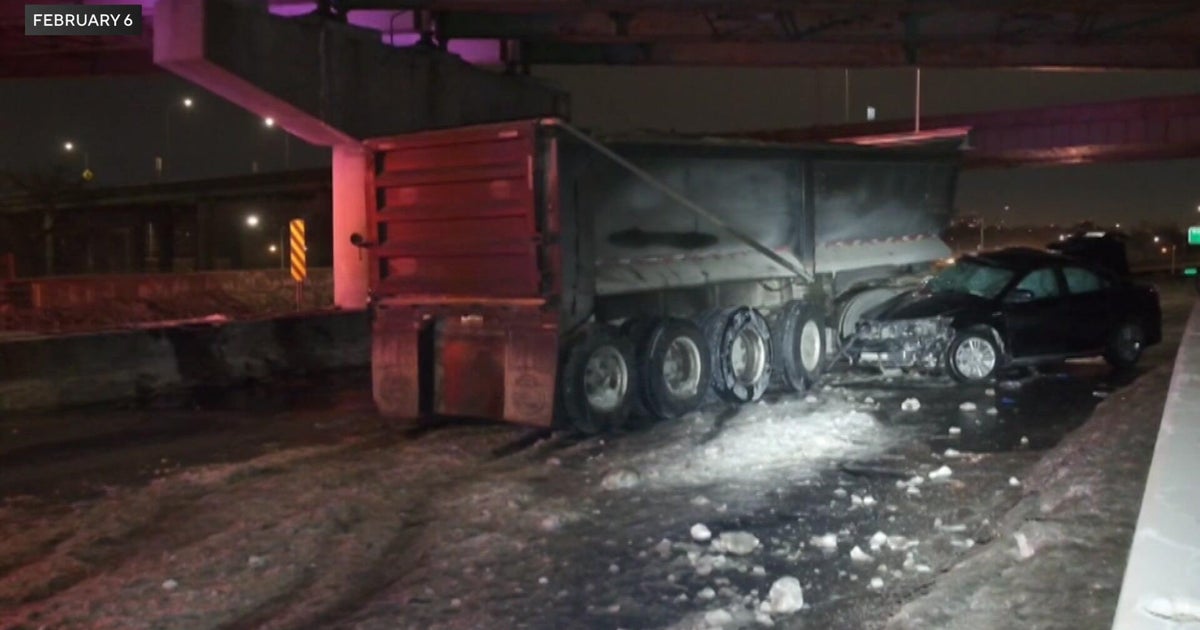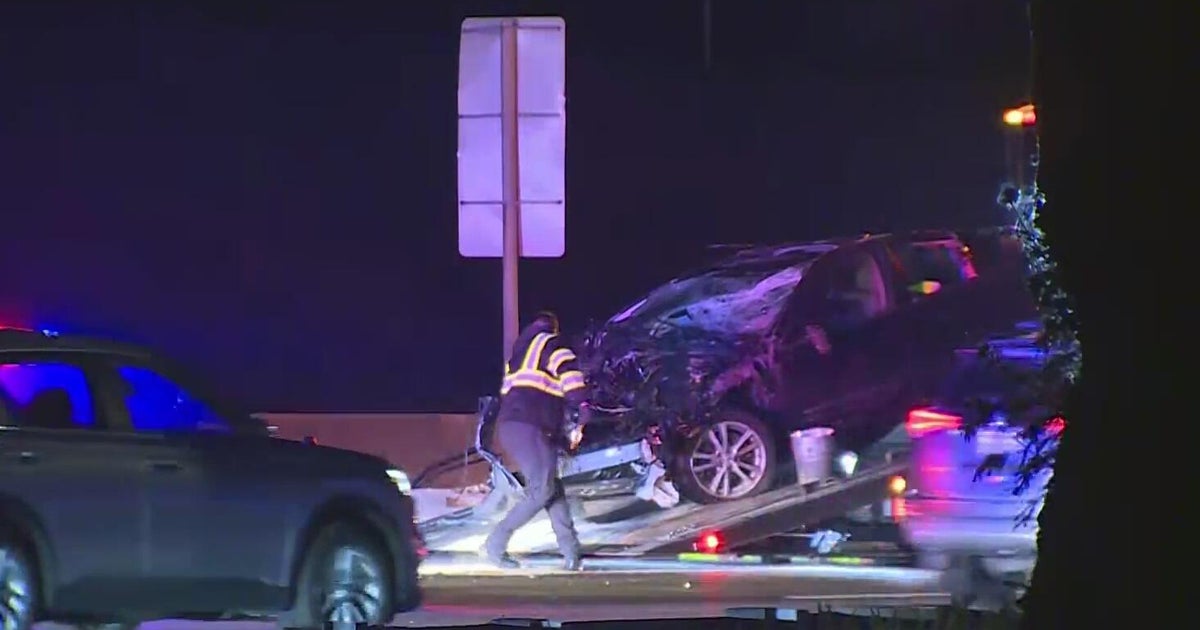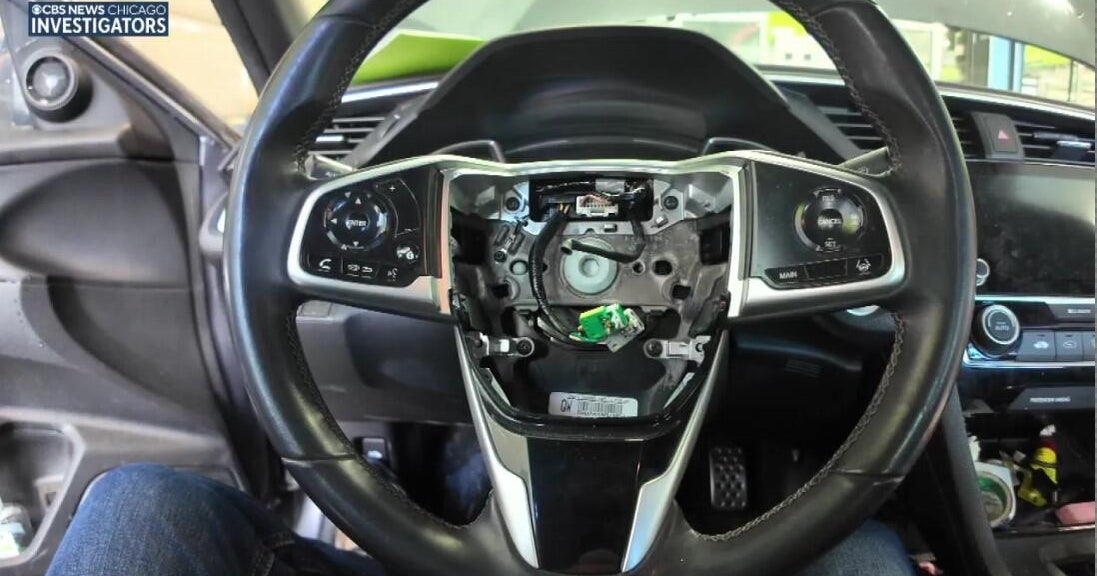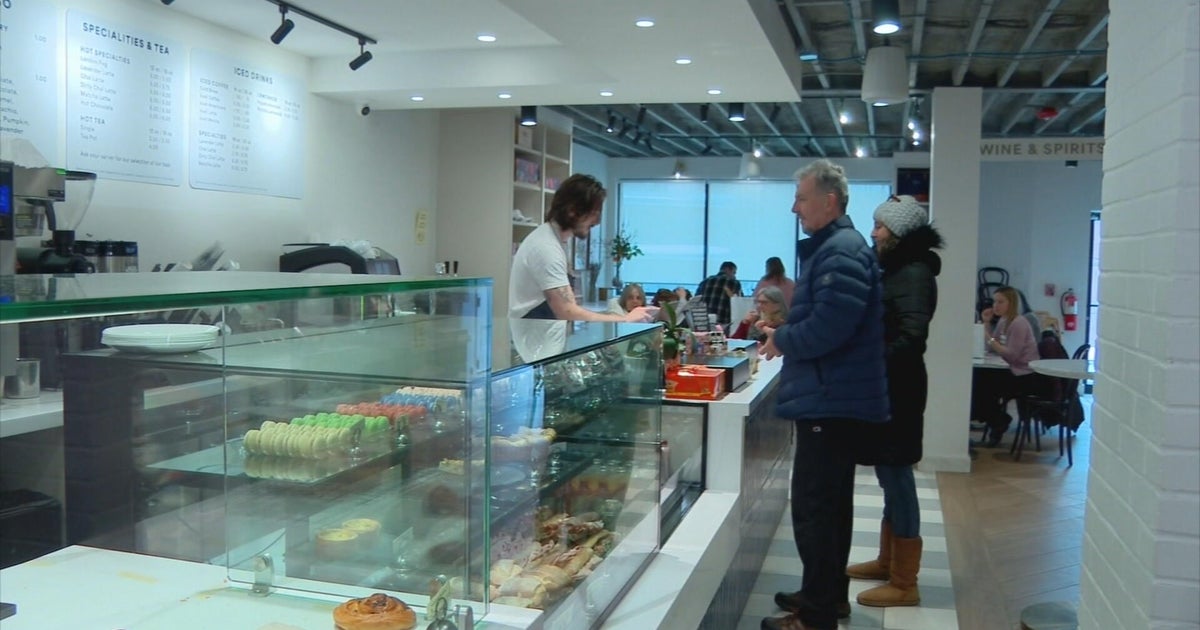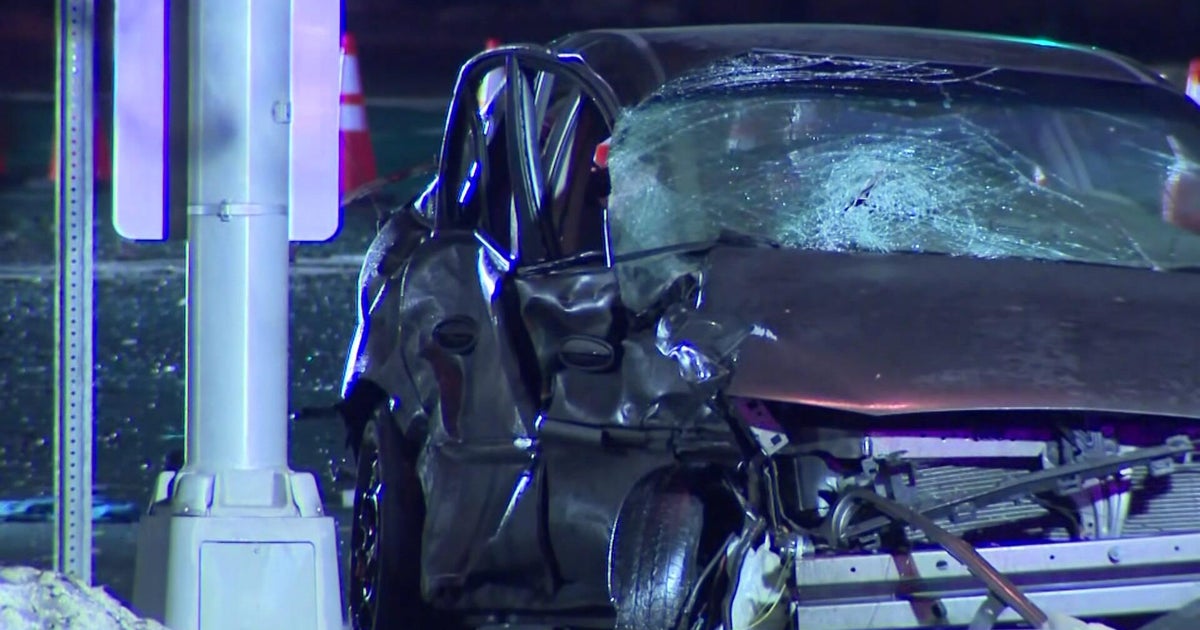Cab Drivers Want Steep Fare Hike, Vomit Cleanup Fee
Updated 12/20/11 - 5:20 p.m.
CHICAGO (CBS) -- It's been six years since Chicago cab drivers have had a fare increase and cabbies say it's about time they had another one.
As CBS 2's Vince Gerasole reports, a group of 1,500 cab drivers have signed off on a proposal to raise fares by 22 percent, charge credit card users a $1.50 convenience fee and a $75 fee for drunken passengers who vomit in their vehicles.
The cabbies also want to impose a $50 fee for the use of a fraudulent credit card and a $1 fee for each additional passenger. Currently, there is a $1 fee for the first additional passenger and a 50 cent fee for every other extra passenger.
In a bumpy economy, taxi drivers say they need a fare hike now, of at least 22 percent.
Cabbies said they need a significant fare hike because most drivers have to work significant overtime just to make a profit.
"Many drivers claim that they're putting in 14, 16 hours a day," cabbie George Kasp said. "I don't doubt it. I've done a little bit of that myself years ago, but … the end is going to come to those kind of crazy hours."
That's because Mayor Rahm Emanuel is pushing for a series of reforms for the taxi industry, including a 12-hour limit on cabbies' shifts.
The last time cab drivers saw a fare increase was in 2005, when fares went up about 17 percent.
"It's reasonable to ask for a fare hike after six years," Kasp said.
The typical five-mile cab ride in Chicago would rise from $12.72 to $15.50. In New York City, the same ride runs $16.10 and in Los Angeles, the price is $20.22.
Taxi driver Thaddeus Budzynski has spent the past few months collecting th1 1,500 signatures needed to require a City Council hearing on a rate hike request, but drivers say they've been here before.
"We've petitioned the city. This is the fourth time. We've been declined each time," Kasp said.
As the city proposes equipping all cabs with credit card swipers, the petition also asks for a $1.50 surcharge for the lag time it takes drivers to receive their cash payouts.
Budzynski said he can understand how a rider might enjoy the convenience of using a credit card, "but the riders have to understand that we need cash to put gasoline in our cabs so that we can keep our business going."
Cabbies would also like a $75 cleaning fee for those who have overindulged and gotten sick in their cabs.
"If they don't stick their head out the window, vomiting outside, they're vomiting inside," Budzynski said. "I had a lady stick her head out of the window and they vomited on my cab, on the side of the cab, and who had to clean it up? I did."
Kasp said, "I don't need to say much about when somebody vomits in a cab. It's pretty bad."
"Overall, the economy is making it rough for everybody," said Kathy Cotney, of Griffith, Ind., who was visiting downtown Chicago on Tuesday.
But visiting consumers, like the Cotneys, said now just isn't the time to be paying more for a cab ride.
"It's already really expensive to come into Chicago and, when you add parking and taxis on top of it, it makes it hard for somebody to come downtown," Cotney said.
But Kasp said a fare increase is "the only reasonable thing to do."
City officials said the mayor's proposals to encourage more fuel-efficient cars and standardizing the vehicle lease system for taxi drivers will put more money in drivers' pockets.
The city has 60 days to conduct a hearing into the cabbies' request for a fare hike, but the City Council isn't forced to vote on it. Regardless, fare hikes are unlikely until the mayor's proposed reforms are in effect.
Last week, the mayor announced plans for new, tighter regulations on taxis. The reforms, which touch all aspects of the industry, were largely prompted by a CBS 2 investigation of dangerous drivers.
The reforms include a limit on the age of vehicles that can be on the roads, by lowering the maximum number of miles on a newly-converted taxi to 75,000 from 150,000.
Also, on-the-road training will be required before cab drivers are licensed and driving records will be reviewed more than once a year.
The city also plans to impose a tiered lease system, with discounts on medallion fees for companies that buy fuel-efficient and wheelchair-accessible vehicles.
Also planned is a standardized lease system that will restrict hidden charges that companies are incorporating into taxi leases, so as to protect drivers from illegal overcharges, according to the mayor's office.
Credit card swipe machines and GPS technology would also be mandatory for cabs, according to the Mayor's office.
